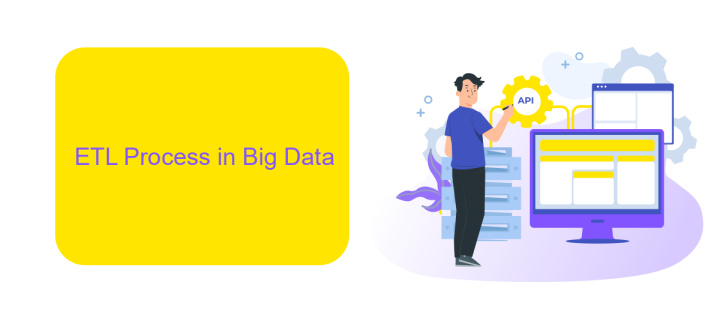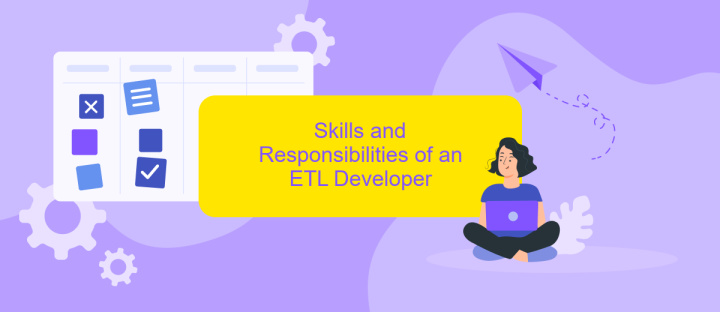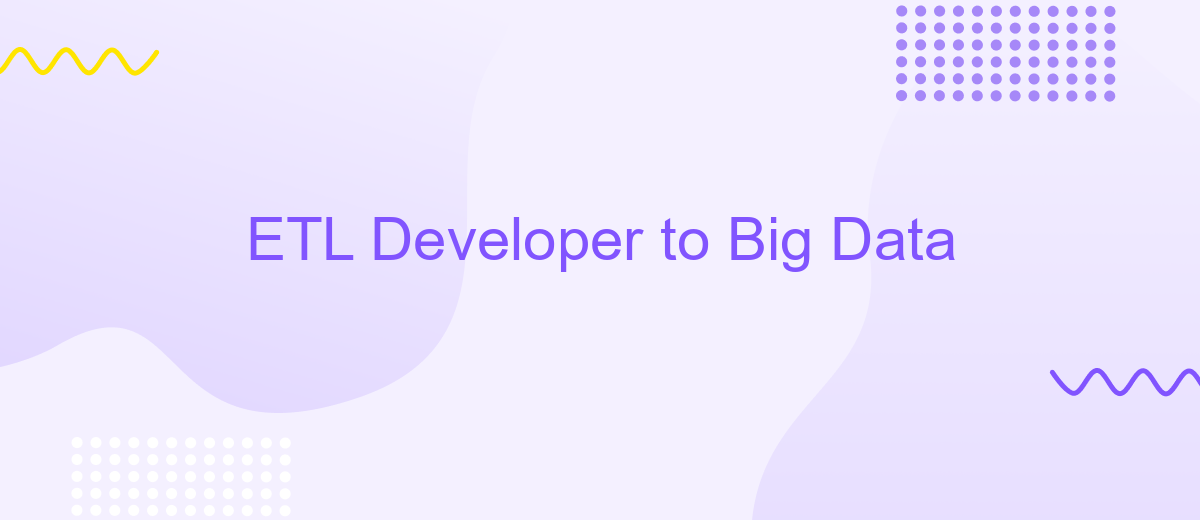ETL Developer to Big Data
Transitioning from an ETL Developer to a Big Data professional involves a significant shift in skills and mindset. As the volume, variety, and velocity of data continue to grow, traditional ETL processes must evolve to handle the complexities of Big Data. This article explores the essential steps, tools, and knowledge required to successfully make this career transition.
Introduction
The transition from an ETL Developer to a Big Data professional represents a significant career shift, demanding a new set of skills and knowledge. ETL Developers are accustomed to working with structured data and traditional databases, whereas Big Data professionals must manage vast amounts of unstructured data using distributed computing frameworks. This evolution is driven by the increasing volume, velocity, and variety of data generated in today's digital landscape.
- Understanding the fundamentals of distributed computing and parallel processing
- Gaining proficiency in tools like Hadoop, Spark, and Kafka
- Learning to work with NoSQL databases such as Cassandra and MongoDB
- Developing skills in data analytics and machine learning
- Mastering cloud platforms like AWS, Azure, and Google Cloud
Services like ApiX-Drive can facilitate this transition by simplifying the integration of various data sources and automating data workflows. As you move towards a Big Data role, leveraging such tools can help streamline processes and ensure seamless data management. This journey not only enhances technical capabilities but also opens up new opportunities in the ever-evolving field of data science and analytics.
ETL Process in Big Data

The ETL process in Big Data involves extracting data from various sources, transforming it into a usable format, and loading it into a data warehouse or data lake. This process is crucial for making sense of large volumes of data and deriving actionable insights. ETL developers need to handle structured, semi-structured, and unstructured data, ensuring data quality and consistency during the transformation phase. The scalability of Big Data platforms allows for processing massive datasets in parallel, enhancing efficiency and performance.
Integrating multiple data sources can be challenging, but services like ApiX-Drive simplify this task by offering seamless integration capabilities. ApiX-Drive enables the automation of data flows between different applications and services, reducing the manual effort involved in setting up and maintaining integrations. By leveraging such tools, ETL developers can focus more on optimizing data transformation processes and less on the intricacies of data integration. This results in faster deployment times and more reliable data pipelines, crucial for the dynamic demands of Big Data environments.
Skills and Responsibilities of an ETL Developer

An ETL Developer plays a crucial role in managing and optimizing data flows within an organization. They are responsible for extracting, transforming, and loading data from various sources into a centralized data warehouse, ensuring data quality and integrity throughout the process.
- Design and implement ETL processes using tools like Apache NiFi, Talend, or Informatica.
- Develop and maintain data pipelines to support business intelligence and analytics needs.
- Ensure data quality and consistency through rigorous testing and validation procedures.
- Collaborate with data architects and analysts to understand data requirements and business objectives.
- Monitor and troubleshoot ETL processes to identify and resolve issues promptly.
- Utilize integration services like ApiX-Drive to streamline data flows between various systems and applications.
- Document ETL processes and workflows for future reference and maintenance.
In addition to technical skills, an ETL Developer must possess strong problem-solving abilities and attention to detail. They should be familiar with database management systems, SQL, and data warehousing concepts. Effective communication and teamwork are also essential, as they often work closely with other IT professionals and business stakeholders to deliver reliable data solutions.
Challenges and Opportunities

Transitioning from an ETL Developer to a Big Data professional presents both challenges and opportunities. One of the primary challenges is mastering new technologies and tools that are essential for handling large-scale data processing and analytics. This often requires a solid understanding of distributed computing frameworks like Hadoop and Spark, as well as proficiency in programming languages such as Scala or Python.
Another challenge is the need to adapt to a rapidly evolving technological landscape. Big Data technologies are constantly evolving, and staying updated with the latest trends and best practices is crucial. Additionally, integrating various data sources can be complex, but services like ApiX-Drive can simplify this process by providing seamless integration solutions.
- Learning distributed computing frameworks
- Mastering programming languages like Scala or Python
- Staying updated with technological advancements
- Integrating diverse data sources with tools like ApiX-Drive
Despite these challenges, the opportunities in the Big Data field are immense. Professionals with Big Data skills are in high demand, and the ability to derive actionable insights from vast amounts of data can significantly impact business decisions. This transition not only enhances career prospects but also offers the chance to work on innovative projects that drive technological progress.
- Automate the work of an online store or landing
- Empower through integration
- Don't spend money on programmers and integrators
- Save time by automating routine tasks
Conclusion
Transitioning from an ETL Developer to a Big Data specialist is a significant career progression that involves mastering new tools and methodologies. As data volumes continue to grow exponentially, the demand for professionals skilled in big data technologies is at an all-time high. This shift not only opens up new opportunities for career advancement but also allows professionals to work on more complex and impactful data projects.
Incorporating automated integration services like ApiX-Drive can further streamline the transition. ApiX-Drive enables seamless data integration across various platforms, reducing the time and effort required for manual data handling. By leveraging such tools, ETL Developers can efficiently manage data pipelines and focus on deriving valuable insights from big data. Embracing these advancements will not only enhance your technical skill set but also position you as a valuable asset in the evolving field of data analytics.
FAQ
What is the role of an ETL Developer in a Big Data environment?
How can ETL processes be automated for Big Data integrations?
What skills are essential for an ETL Developer transitioning to Big Data?
How does data transformation differ in Big Data compared to traditional ETL?
What are the common challenges faced by ETL Developers in Big Data projects?
Strive to take your business to the next level, achieve your goals faster and more efficiently? Apix-Drive is your reliable assistant for these tasks. An online service and application connector will help you automate key business processes and get rid of the routine. You and your employees will free up time for important core tasks. Try Apix-Drive features for free to see the effectiveness of the online connector for yourself.


